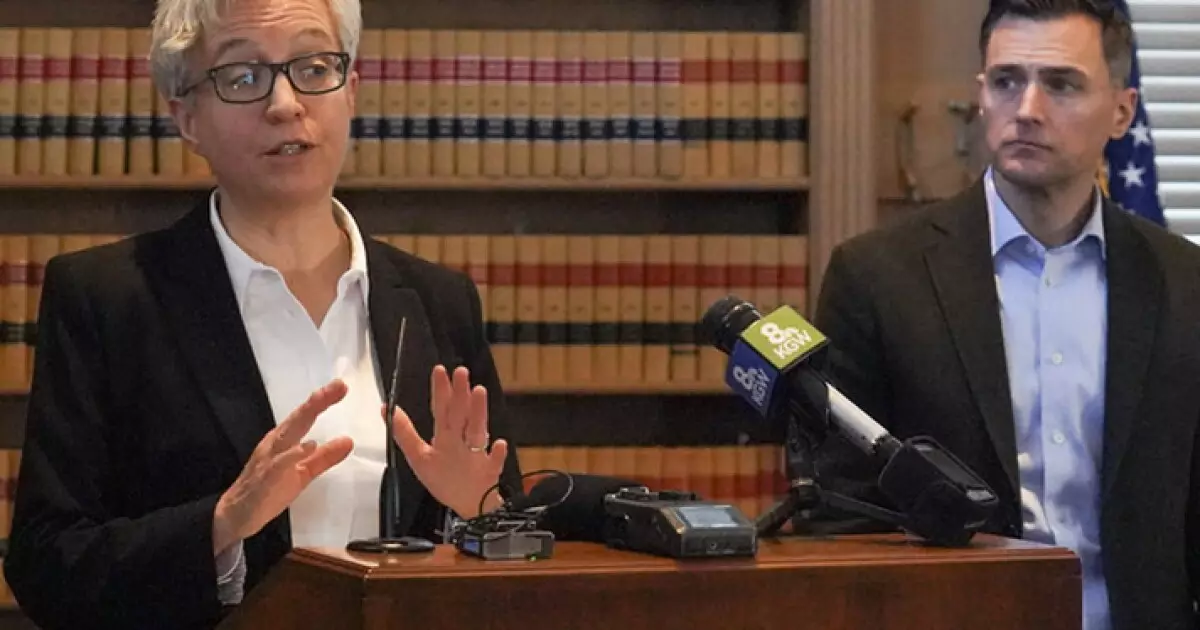Oregon’s recent transportation layoffs expose a fundamental failure in leadership and political strategy. For too long, governance in Oregon has been hamstrung by partisan gridlock and superficial compromises, leaving vital infrastructure vulnerable. The refusal of lawmakers to pass a comprehensive transportation package underscores a catastrophic neglect of practical priorities. It’s not merely about funding; it’s about recognizing the importance of a resilient, efficient transport system that underpins economic stability, public safety, and quality of life. The failure to act swiftly, especially after prolonged negotiations, reveals a troubling disconnect between political posturing and the tangible needs of citizens. This crisis was entirely preventable, yet it has now become a stark symbol of indecisiveness at the state capitol. Leaders who prioritize ideological purity over pragmatic solutions have neglected their duty, and Oregon is paying the price.
The Human Toll and Systemic Risks
Layoffs of nearly 932 Oregon Department of Transportation employees threaten the very fabric of everyday life in the Beaver State. Maintenance crews responsible for pothole repairs, pavement upkeep, and wildfire prevention are being cut back at a moment when these services are most critical. The potential delays in fixing roads and clearing brush threaten safety and efficiency, especially as wildfire seasons intensify and winter storms loom. The reduction of support staff also compromises emergency responsiveness, risking lives during natural disasters and emergencies—precisely when a strong transportation network is most vital. The elimination of vacant positions will serve as a short-term budget fix, but it sacrifices institutional knowledge, operational readiness, and the ability to adapt in crises. The human impacts are tangible and immediate, yet they also hint at a systemic decline that may take years to reverse if decisive action isn’t taken.
An Economic and Strategic Blunder
From an economic standpoint, neglecting Oregon’s infrastructure is short-sighted. Roads and bridges are more than mere pathways; they are assets that fuel commerce, support jobs, and connect communities. Allowing these assets to degrade fuels a vicious cycle of increased repair costs and economic inefficiencies. Politicians’ failure to push through a substantial revenue package reveals a deeper question: are they committed to Oregon’s long-term prosperity or just short-term political victories? The rejection of House Bill 2025, a $14.6 billion plan with balanced tax and fee increases, reflects a failure of leadership from both sides to prioritize growth and stability. Instead, political ideals have left Oregon vulnerable to the fallout of delayed investments, which will cost considerably more in the future. Playing politics with infrastructure isn’t just irresponsible; it’s a reckless gamble on the wellbeing of Oregonians.
A Dangerous Precedent and a Call for Action
As winter approaches, the looming threat of more severe road closures, slower snow removal, and reduced de-icing measures exemplifies the dangerous precedent set by political stalemate. The scaled-back vegetation management and fire prevention efforts amplify risks, potentially leading to tragic consequences. The strategic choice to defer essential maintenance under the guise of budget management demonstrates a shortsighted view—one that disregards the vital importance of proactive preparedness. If Oregon’s leadership refuses to acknowledge responsibility now, the consequences will extend beyond disrupted commutes; they will threaten lives, economic stability, and the state’s reputation for resilience. The situation demands urgent intervention, not just a bandaid solution, but a genuine commitment to funding a future where Oregon’s infrastructure is seen as an investment, not a liability.
Rediscovering Leadership’s True Purpose
This crisis presents an inflection point for Oregon. Leaders must understand that governance isn’t about stalling negotiations or idealistic inflexibility; it is about making tough choices for the collective good. The failure to pass a transportation budget isn’t just a fiscal issue—it’s a moral one. It’s about the obligation to safeguard infrastructure, protect communities, and foster economic growth. If Oregon continues down this path of neglect, it risks becoming a cautionary tale of what happens when political dogma trumps practical governance. True leadership requires re-evaluating priorities, embracing pragmatic solutions, and pushing beyond partisan boundaries to serve the common good. Until that happens, the state’s roads, safety, and future prosperity will remain in peril.

